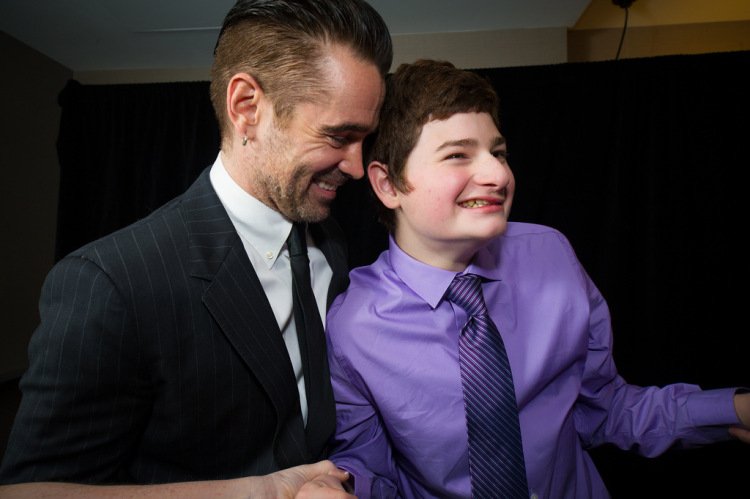Learning that James, the actor Colin Farrell’s son, has Angelman Syndrome has contributed to an increased awareness of this unusual genetic disorder. Angelman Syndrome affects more than 1 in 20,000 persons, making it a mostly unknown condition. On the other hand, it may have a significant effect on the people who experience it and their families. This article goals to give people more understanding about Angelman Syndrome, including its signs and symptoms, genetic causes, and possible treatments.
Colin Farrell’s Son James: A Personal Story
Understanding Syndrome is made more relatable by Colin Farrell’s personal experience with it. His son James was given the diagnosis, starting a journey that has not only had an extreme effect on their family but also brought notice to the difficulties and mental health problems related to Syndrome. Farrell’s candour regarding his son’s disease contributed to better knowledge and awareness of this uncommon genetic disease. He is a moving example of the effects Angelman has on families and the value of funding awareness and research activities.
Understanding Angelman Syndrome: An Overview
A brain disorder known as Syndrome results in extreme delay in growth, mental weakness, and problems with movement. A common feature of the syndrome is that people with it like to be happy and have a lot of smiling. Even though they appear happy most of the time, they have a lot of difficulties, such as issues with balance, movement, and communication. While the disease is present from birth, a child’s symptoms usually become more apparent as they get older.
Genetic Causes and Mechanisms Behind Angelman Syndrome
The gene found on the 15th chromosome called UBE3A has changes that result in Angelman syndrome. The correct activity of the brain requires this gene. The condition is typically caused by a change or deletion of the UBE3A gene on the maternal files chromosome. Being devoid of the maternal copy seriously hampers normal brain growth because the UBE3A gene is normally cool on the paternal chromosome. The symptoms of Syndrome are triggered by this genetic anomaly.
Read more Article: Disruptive Travel at Boston Logan Airport
Common Symptoms and Diagnosis of Angelman Syndrome
Angelman Syndrome can cause a number of symptoms, but the most common ones include significant developmental delays, physical issues, and speech impairments. Angelman Syndrome children have a happy mood and frequently smile and laugh. They may have trouble with balancing, walking, and controlling their muscles. Usually, genetic testing that finds changes in the UBE3A gene is used to confirm the diagnosis. Early diagnosis helps because it enables quick action and problem management.
Current Treatment Options and Therapies
Angelman Syndrome has no known treatment, however there are treatments that can help control its symptoms improve your quality of life. Physical conditioning is commonly used in treatment programs to improve physical capacity; psychological therapy is used to support everyday tasks; and speech therapy is used to address issues with communication. People with Angelman Syndrome frequently have seizures, which can be managed with medication. Current studies are looking into different forms of therapy, such as gene therapy that could target the fundamental genetic problems.
Conclusion
Even extremely not common, Angelman Syndrome causes serious challenges for both the affected individuals and their families. We can help people with Angelman Syndrome better if we understand the genetic cause of the condition, identify its symptoms, and research possible treatments. Personal accounts, such as the one shared by Colin Farrell’s son, highlight the need for more support and research and help boost awareness and empathy.

